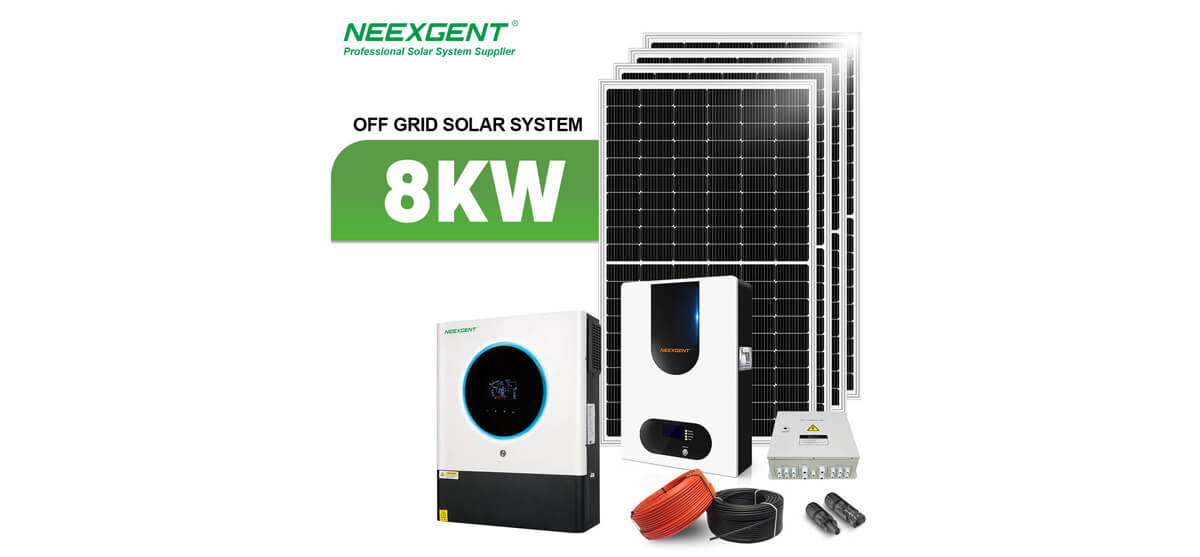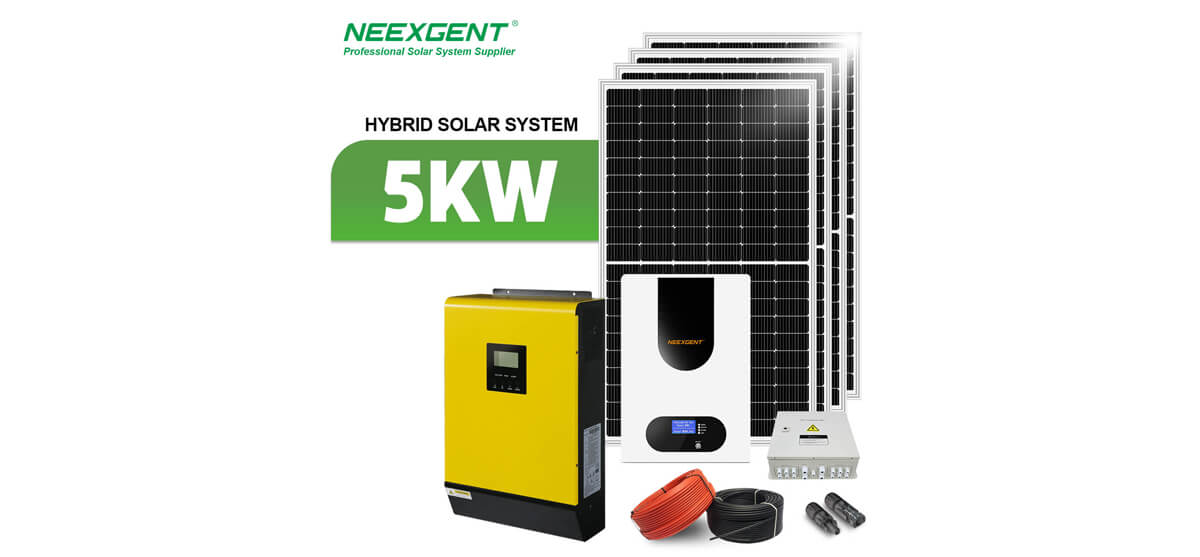Vietnam, a rapidly developing country in Southeast Asia, is embracing renewable energy sources to meet its increasing energy demands and combat climate change. Among the various renewable energy options available, solar energy has gained significant attention and investment in recent years. The adoption of solar energy systems in Vietnam is not only helping the country diversify its energy mix but also contributing to its sustainable development goals. In this article, we will explore the growth and potential of solar energy systems in Vietnam.

NEEXGENT Off Grid Solar System
1. Favorable Geographic Location:
Vietnam enjoys abundant sunshine throughout the year due to its favorable geographic location. With its long coastline and relatively low latitude, the country receives a high amount of solar radiation, making it an ideal location for solar energy generation. The average solar radiation in Vietnam ranges from 4 to 5 kWh/m² per day, providing a significant solar energy potential.
2. Government Support and Policies:
The Vietnamese government has recognized the importance of renewable energy, including solar power, to achieve its energy security and environmental goals. To promote the development of solar energy, the government has implemented various support mechanisms and policies. These include feed-in tariffs, tax incentives, preferential loan programs, and simplified procedures for project approval and land allocation. Such initiatives have attracted domestic and foreign investments in the solar energy sector.
3. Rapid Growth in Solar Capacity:
Vietnam has experienced remarkable growth in solar energy installations in recent years. According to the International Renewable Energy Agency (IRENA), the country's installed solar capacity reached approximately 16 gigawatts (GW) by the end of 2021. This represents a significant increase from a mere 134 megawatts (MW) in 2018. The Vietnamese government has set a target to increase the solar capacity to 18 GW by 2030, indicating its commitment to the sector's growth.
4. Large-Scale Solar Projects:
Vietnam has witnessed the development of several large-scale solar projects, including solar farms and solar power plants. These projects contribute significantly to the country's renewable energy capacity and reduce reliance on fossil fuels. For instance, the 450 MW Ninh Thuan solar power plant, one of the largest solar projects in Southeast Asia, generates clean electricity to power approximately 200,000 households. Similarly, the 330 MW Hoa Hoi solar farm and the 500 MW Dau Tieng solar power complex are notable examples of Vietnam's commitment to large-scale solar installations.

NEEXGENT Hybrid Solar System
5. Distributed Solar Energy Systems:
In addition to large-scale solar projects, distributed solar energy systems are gaining popularity in Vietnam. These systems, comprising rooftop solar panels on residential, commercial, and industrial buildings, allow individual consumers to generate their own electricity. The government has introduced net metering schemes that enable consumers to sell excess electricity back to the grid, promoting the uptake of distributed solar energy systems. This approach not only reduces the burden on the centralized power grid but also empowers individuals to become active participants in the energy transition.
6. Economic and Environmental Benefits:
The adoption of solar energy systems in Vietnam offers numerous economic and environmental benefits. Solar power generation reduces the country's reliance on imported fossil fuels, contributing to energy security and cost stability. It also creates employment opportunities in the solar industry and stimulates local economic growth. Furthermore, solar energy helps mitigate greenhouse gas emissions, air pollution, and other environmental impacts associated with conventional energy sources.
7. Future Potential:
Vietnam's solar energy sector holds immense future potential. The government's ambitious renewable energy targets, supportive policies, and the country's favorable solar resource position Vietnam as a key player in the global solar energy market. The declining costs of solar technology, coupled with technological advancements, make solar energy an increasingly competitive and viable option for meeting Vietnam's growing energy needs. With ongoing investments and advancements in energy storage technologies, solar energy systems are expected to become more reliable and capable of providing uninterrupted power supply, even during periods of low solar irradiation.

NEEXGENT On Grid Solar System
To fully unlock the potential of solar energy in Vietnam, certain challenges need to be addressed. These include grid integration and stability, land availability for large-scale projects, and the need for skilled manpower in the solar industry. The government is actively working on solutions to overcome these challenges through grid infrastructure improvements, land-use planning, and vocational training programs.
Collaboration between the government, private sector, and international partners is crucial for the sustained growth of solar energy systems in Vietnam. Foreign investment and technology transfer can play a significant role in further advancing the sector. Initiatives such as public-private partnerships and joint ventures can facilitate knowledge exchange, technology sharing, and financial support to accelerate the development of solar energy projects.
Vietnam's commitment to solar energy systems is driving the country towards a greener and more sustainable future. The favorable geographic conditions, government support, and rapid growth in solar capacity demonstrate Vietnam's potential as a solar energy leader in the region. As the sector continues to evolve and overcome challenges, solar energy will play a pivotal role in Vietnam's energy transition, reducing carbon emissions, enhancing energy security, and fostering economic growth. With continued investments and innovation, solar energy systems will undoubtedly shine brightly in Vietnam's renewable energy landscape.








